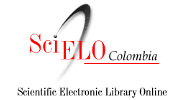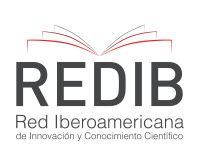Inmunobiología de la reproducción: II. Inmunología de la relación materno-fetal
DOI:
https://doi.org/10.18597/rcog.895Keywords:
Materno-fetal interface, pregnancy, decidua, trophoblast, recurrent spontaneous abortionAbstract
El presente artículo es una revisión de la literatura sobre los fenómenos inmunológicos comprometidos en el reconocimiento alogénico de la madre hacia el feto. Se hace una descripción de los antígenos que pueden estar involucrados y de los diferentes mediadores inmunológicos como los anticuerpos, las linfoquinas, los factores de crecimiento y algunos factores supresores producidos por células deciduales y trofoblásticas. A manera de ejemplo se mencionan algunas de las patologías que se pueden presentar por alteración en la interfase materno-fetal como es el caso del aborto recurrente espontáneo.
Author Biographies
Angela P. Cadavid
Grupo Inmunobiología de la Reproducción. Facultad de Medicina, Universidad de Antioquia.
Jorge E. Ossa
Grupo Inmunobiología de la Reproducción. Facultad de Medicina, Universidad de Antioquia.
References
Alexander NJ., Anderson DJ. Immunology of semen. Fertil Steril 1987; 47(2): 192-205.
Nilsson BO., Bergstrom S., Hakansson I. et al. Ultrastructure of Implantation. Upsala J Med Sci 1978; suppl 22 : 27-38.
Beer AE., Billingham RE. The embryo as a transplant. Sci Am 1974; 20: 36-46.
Chaouat G. La defensa del feto contra su madre. Mundo Cient 1986; 6. 718-730.
James K., Hargreave T. Immunosuppression by seminal plasma and it possible clinical significance. Immunol Today 1984; 5( 12): 357-363.
Desoye G., Dohr GA., Motter W. et al. Lack of HLA Class I and Class II antigens on human preimplantation embryos. J Immunol 1988; 140( 12): 4157-4159.
Daya S., Clark D. Identification of two species of suppressive factor of differing molecular weight released by in vitro fertilized human oocytes. Fertil Steril 1988; 49(2): 360-363.
Kapovic M. , Rukaviana D. Kinetics of lymphoproliferative responses of lymphocytes harvested from the draining lymph nodes during pregnancy in rats. J Rep Immunol 1990; (in press).
Matsui S., Yoshimura N., Oka T. Immunochemical characterization of the supressor factor from early human decidual cells. Transplantation 1989; 48(4): 651 654.
Finn CA. Implantation, menstruation and inflammation. Biol. Rev. 1986; 61: 313-328.
Beer AE. Immunologic aspects of normal pregnancy and recurrent spontaneous abortion. Semin Reprod Endocrinol 1988; 6(2) : 163-178.
Daya S., Clark DA. Immunoregulation at the maternofetal interface . Immunol Aller Clin N Am 1990; 10(1): 49-64.
Mogil RJ., Wegmann TG. Maternal immune reactivity as a determinant of placental function and fetal survival. Semin Reprod Endocrin 1988; 6(2): 145- 154.
Dietl J., Horny HP., Ruck P. et al. lntradecidual T Lymphocytes Lack Immunohistochemically Detectable T-Cell Receptors. Am J Reprod Immunol 1990; 24: 33 36.
Faulk WP. , McIntyre JA. Immunological studies of human trophoblast: Markers, subsets and functions. Immunol Rev 1983; 75: 139-175.
Faulk WP. , Path FRC., Hunt JS. Human trophoblast antigens . Immunol Aller Clin N Am 1990; 10(1): 27-48.
Kovats S., Main EK., Librach C. et al. A Class 1 Antigen, HLA-G, Expressed in Human Trophoblasts. Science 1990; 248: 220-223.
Hunt JS., HSI BL. Evasive Strategies ofTrophoblast Cells: Selective Expression of Membrane Antigens. Am J Reprod Immunol 1990; 23: 57-63.
Ellis S., HLA G. Al the Interface. Am J Reprod Immunol 1990; 23: 84-86.
Faulk WP., Temple A., Lovins RE. el al. Antigens of human trophoblasts: A working hypothesis for their role in normal and abnormal pregnacies. Proc Natl Acad Sci 1978; 75(4): 1947-1951.
Thaler CJ., McIntyre JA. Fetal wastage and nonrecognition on human pregnancy. Immunol Aller Clin N Am 1990; 10(1): 79-98.
Toder V., Shomer B. The role of lymphokines in pregnancy. Immunol Aller Clin N Am 1990; 10(1): 65-77.
Morrish DW., Rao CH. Workshop on growth factors and placental differentiation. Placental communications 1990; 199: 101-104.
Wegmann TG. The cytokine basis for cross-talk between the maternal Immune and reproductive systems. Curr Opinion Immunol 1990; 2: 765-769.
Cross JC., Farin CE., Sharif SF. et al. Characterization of the Antiviral Activity Constitutively Produced by Murine Conceptuses: Absence of Placental mRNAs for Interferon Alpha and Beta. Molec Reprod Devel 1990; 26: 122-128.
Clark D. Paraimmunology in the Decidua? Am J Reprod Immunol1990; 24: 37-39.
Clark D., Flanders K C., Banwatt D. el al. Murine pregnancy decidua produces a unique immunosuppressive molecule related to Transforming Growth Factor J Immunol 1990; 144(8): 3008-3014.
Beer AE., Kwak JY. What is the evidence for immunologic pregnancy loss?: Lymphocyte immunization the supportive view. American Fertility Society , 46th Annual meeting.
How to Cite
Downloads
Downloads
Published
Issue
Section
License
Copyright (c) 2016 Revista Colombiana de Obstetricia y Ginecología

This work is licensed under a Creative Commons Attribution-NonCommercial-NoDerivatives 4.0 International License.
| Article metrics | |
|---|---|
| Abstract views | |
| Galley vies | |
| PDF Views | |
| HTML views | |
| Other views | |
















